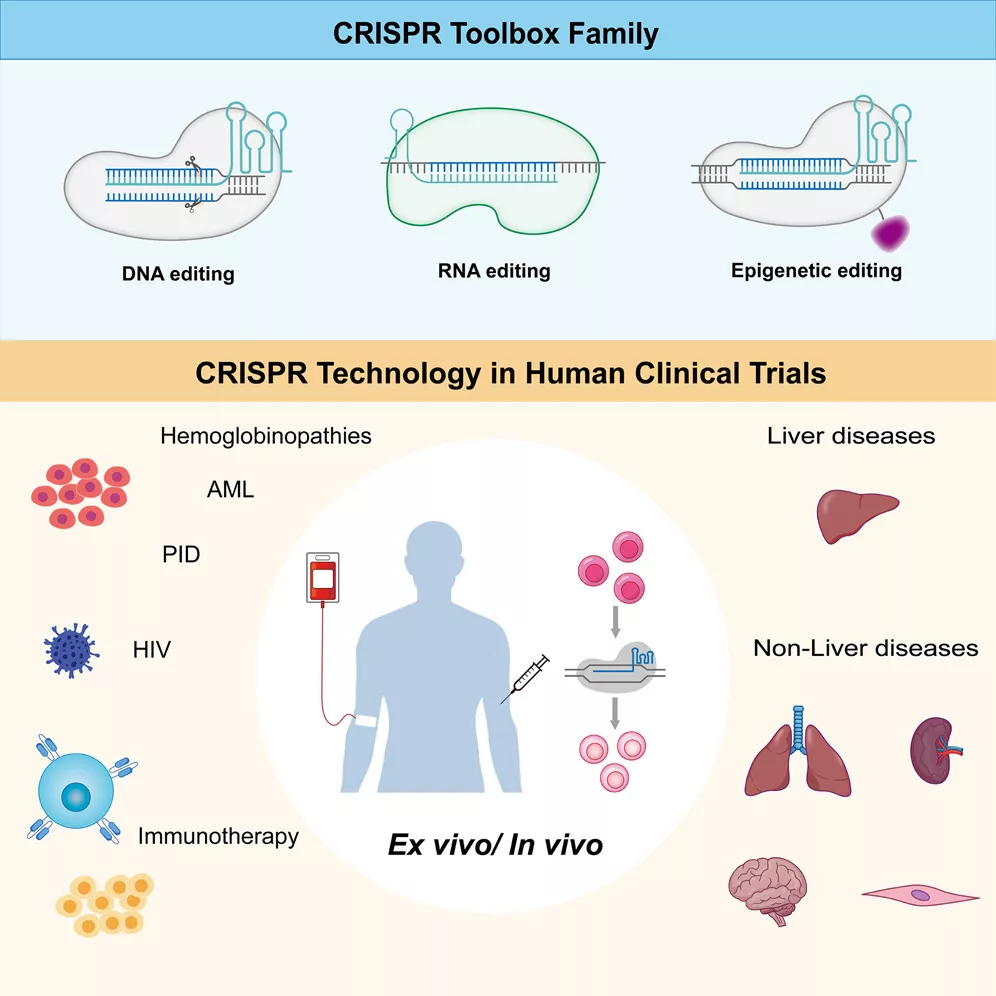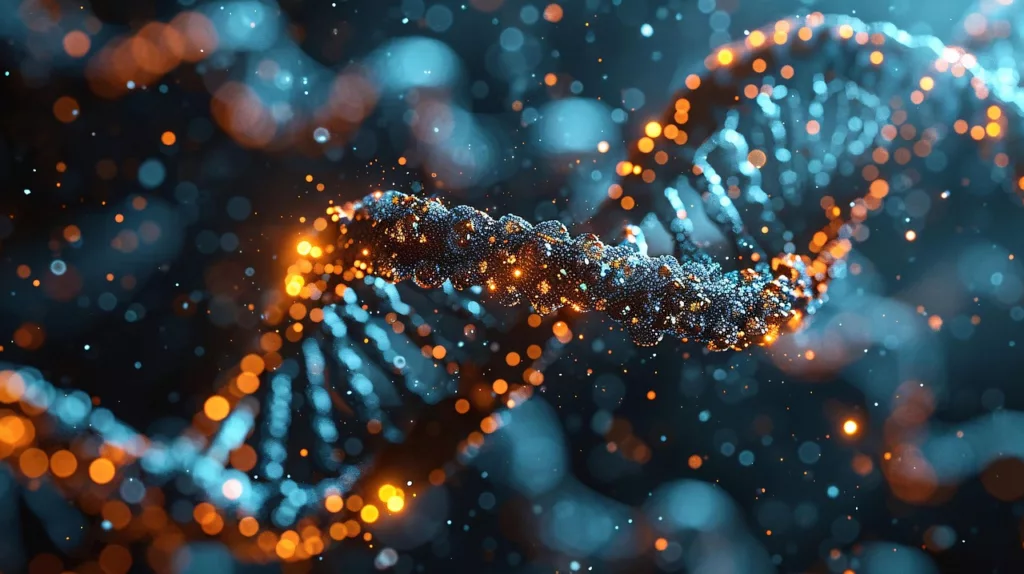By Marta Koblańska, January 29, 2026, 16:00 Poland’s time. The Author of the photo: Ruijin Ji, Cell Reports Medicine
By modifying the conversion of purine bases constituting a body template for growth and health, there could be possible to cure the most damaging illnesses, according to the scientists in China.
China is well-known for its farsighted medical experiments. The country also has more flexible legal rules to conduct them, while it has switched toward conditions for experiments from ex vivo to in vivo. The recent outcomes have shown awesome achievement. In the new study published on January 20, 2026, in the journal ,,Cell Reports Medicine,” scientists present a new approach, thus based on previous discoveries of the CRISPR approach to the naturally occurring process of DNA and RNA repairing due to random or facilitated mistakes/errors, which may lead to various deficits or health problems in eukaryotes.
A passion for creating spaces
Our comprehensive suite of professional services caters to a diverse clientele, ranging from young dreamers to professionals of various segments of science&economy&defence
Health&Medical Security
Here, I will talk about evolution and medical discoveries that may impact human life
A new approach to correcting gen errors. The way to modify the body blocks

Stamps of humans: Where do they originate from?

When is biological engineering necessary? The newest treatment for multiple sclerosis
Why are certain medical experiments considered excessive?


How to get out of addiction? How does it work?- opinion
How to make cancer dead in the body? Blood holds the key

Circulating tumor cells in the metastatic cascade (spreading fast), Cancer Cell
Science-confirmed reason to welcome guests

How and why does the hippocampus decline? Some facts

Rzeczywiste i iluzoryczne kontrowersje wokół ciąży
Why are genes less similar better for studying diseases?
When and why might the genetic code change? Groundbreaking research addresses these questions.

Why does mitochondrial disruption cost so much?
Why do women put on weight during pregnancy? Mouse example
What makes aging more friendly? X chromosome

Paradox of evolution. What can capture and unleash us from Earth?

How could the Inflation Reduction Act influence cancer drug pricing?


Losing and awakening heartbeat. What is sleep in real?
Does lack of oxygen in body cells trigger cancer?
Human traits. Are they arriving on time?
Behind the wall. Why sex does not matter
When your body is starving relieve. Pain treatment at the edge of life
Why are we happy when learn with positive outcomes? Dopamine which opens our minds just like it.
Is Poland violating human rights?
The key for domestication. Humans’ capability or plant’s domesticability?
Energy Security
Here I will tell about energy security and its importance for everyday human life
Propozycje badawcze 2009/10 – Po co nam ten gaz?



Major security drivers of energy consumption – outlook
How does Russia cope with sanctions and reduce its output?
IEA cuts renewables’ growth forecast for the US by 50 percent. What does this mean for others?
Will Canada’s cut in the Russian oil price benchmark contribute to peace in Ukraine? Or not?
How do power prices account for the security of social welfare?
Energy security in the Baltics may hinge on Poland’s plans for N power

Who will pay more and who will pay less for oil in 2025?
Who is in Jamaica discussing the future of deep-sea minerals?
Are wind farms causing harm to cognitive functioning? Balancing between health and clean energy

Are power users critical for grid resilience? The perception of the security of supply is changing
Nervous systems of global functioning become less efficient – IEA
Are war supporters leftish? That might be the case in the Ukrainian war
Climate Security
Here, I will tell whether the current climate change is a threat to humanity or not
Global warming is changing our DNA. But it may be an advantage
The cage of recycling, without which industries went damned anyway

Portraits
This space is open for businessmen, politicians or companies who can commission a text portrait. The only condition for publication is their real stake in or contribution to change human life for better
Technologies
This space is open for scientists and companies who can present their newly developed technologies. For free if the technology substantially conduces to resolving balzing global, regional or domestic problems
What can heart do on the Earth? Cutting-edge technology saving life in Poland
Cosmic dreams and reality
This space is open for all dreamers who want to change humans life for better without too much harm to Earth&Nature
Études en App
- Collaborate with fellow scientists.
- Showcase your projects.
- Experience the world of science


Études Newsletter
- A world of thought-provoking articles
- Case studies that celebrate evolution&medicine, natural history. security and resources of Earth
- Exclusive access to local, regional and global insights.
“Repetitio mater studiorum est”
Watch, Read, Listen
Stay in the loop with everything you need to know.
-
A new approach to correcting errors. The way to modify the body blocks
By Marta Koblańska, January 29, 2026, 16:00 Poland’s time. The Author of the photo: Ruijin Ji, Cell Reports By modifying the conversion of purine bases constituting a body template for growth and health, there could be possible to cure the most damaging illnesses, according to the scientists in China. China is well-known for its farsighted
-
Why the Iranian regime must change and Americans keep away
By Marta Koblanska, January 13, 2026, 20:00 Poland’s time, photo: lipsticks, aleksandra85foto, Pixabay People on the Iranian streets await, in the meantime, being shot the America’s intervention. America is not going to come unless the Iranian leader cures his blindness. The story of Iran begins long ago. The author of this writing is not fully
-
Propozycje badawcze z roku 2009/2010 – Po co nam ten gaz?
By Marta Koblańska, 2009/2010, Photo: palnik gazowy, Pixabay Stopień zaawansowania cywilizacyjnego może być widziany jako umiejętność użytkowania energii. Człowiek, aby odnaleźć swoje miejsce we współczesnym świecie musi dostosować się do wymogów stawianych mu przez zmieniające się otoczenie i cywilizację, w której żyje. Według Leslie White’a człowiek nie buduje kultury, ale jest ona niezależnym systemem, którego
-
Carrying a disease. How a gene can alter the sense of life
By Marta Koblańska, January 2, 2026, 15:00 Poland’s time, Photo: double helix of DNA, Pixabay The lower the frequency of a disease-inducing gene variant, the larger the absolute effect in size; however, the growth is slower, according to the third most-cited study in 2024, published in Cell Genomics. The third most-cited study of 2024, with
-
Stamps of humans: Where do they originate from?
By Marta Koblańska, 16.12.2025, 12:00 Poland’s time, photo: DNA clash, Pixabay Conflicting genes enable acquiring adaptive morphs – according to a new study from Denmark and China recently published in,, Cell Press”. The human body comprises chemical, molecular, and morphological levels. Each of them has to work properly to maintain functionality and efficiency, and all
-
When is biological engineering necessary? A look at the newest treatment for multiple sclerosis
by Marta Koblanska, December 3, 2025, 21:00 Poland’s time, Photo: Imitation of neuronal structure, thanks to geralt, Pixabay Degradation of the central nervous system caused by inflammation-induced lesions can be alleviated with genetically modified endurance cells CAR-T, according to the new research from China published in the Cell Press Journal. Multiple sclerosis is a highly


